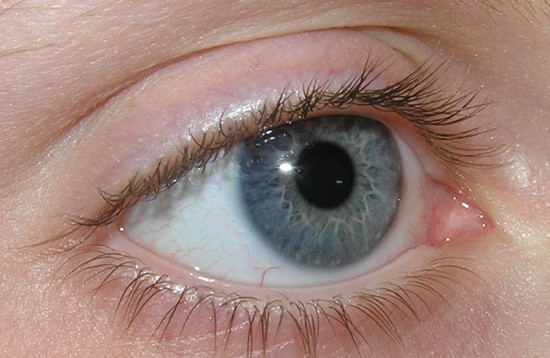RA Eye Problems: What Eye Problems Result from Rheumatoid Arthritis?
Rheumatoid arthritis is a disease that is probably best known for affecting your joints. If you suffer from RA, you are most likely working through those symptoms with your doctor. However, sometimes this chronic inflammatory autoimmune disease can affect other parts of your body too. Ana-Maria Orbai, MD, a Rheumatology specialist at Johns Hopkins University School of Medicine states that RA can be extra-articular, meaning they affect parts of your body outside of the joints. Did you realize that the issues you are experiencing with your eyes can be actually caused by RA? We will discuss the ways that it can affect your eyes and what you should do to protect yourself.

Dry Eyes
One of the most common ways that Rheumatoid Arthritis affects the eyes is by causing or contributing towards dry eyes. Dry eyes are more than just a nuisance; when your eyes remain dry, they are more prone to infection. In addition, eyes that are significantly dry for an extended period of time can cause inflammatory damage to the cornea. While eyes that are dry for only a short period can be aided by eye drops as an over-the-counter remedy, more severe or longer-lasting dry eyes need to be seen by a doctor. There are prescription medications that can help, or your doctor may prefer a “wait-and-see” approach. Either way, it is best to keep the situation monitored to assure there is less risk to your vision.

If you seem to have chronic dry eyes, and RA, another possibility is that you may suffer from Sjogren’s syndrome. Like RA, Sjogren’s is an autoimmune disease, and according to the Mayo Clinic, the two disorders are often found concurrently.
Inflammation
Inflammation, irritation, and redness are less common than regular “dry eyes,” but it is still a concern for those with RA. You may not realize it, but inflammation may have different names, depending on where the problem occurs. Some of the most common types of eye inflammation associated with RA include Scleritis, Iritis, and Uveitis.

• Scleritis – Scleritis is inflammation of the eye which occurs in the white, outer layer of the eye. This area is called the sclera. Symptoms of this include pain, swelling, irritation, sensitivity to light and possibly diminished sight. If you think this may be a concern for you, seeing a doctor immediately is important.
• Iritis – The iris is the colored portion of your eye. It too can become inflamed and irritated. When irritated, blurred vision is usually a symptom, but you may also experience “floating sensations” or other problems with sight.
• Uveitis – The symptoms of Uveitis are very similar to those of Iritis. However, the inflammation is at the very center of your eye, called the uvea.
Medicinal Side Effects
One thing you may not think about affecting your vision and eye health are the very medicines you take to keep your RA symptoms in check. However, it does make sense—these are very powerful medications, and as such, there are opportunities for side effects. If you are experiencing unexplained issues with your eyes, it could be that your medication is to blame. However, this does not mean you should stop taking your RA meds. Contact your physician, It could be that your doctor can change your prescription or come up with a different combination of medications that will give you the results you desire, without all of the side effects.
Your Next Steps
As an RA patient, you probably know how important it is to stay in touch with your doctor or doctors and work with him or her to develop a treatment plan that will work best for you. Remember, your doctor will not have any idea how you are feeling and may not even think to check your eyes for problems if you don’t make him or her aware of your symptoms. Don’t ignore those visual floaters or keep treating your dry eyes with eye drops; instead, talk with your doctor about your problems so that the health of your eyes (and your vision) is never compromised.

When you have RA, eye problems are not always a direct effect of the disease. Therefore, it is important to schedule regular appointments with your ophthalmologist as well as your rheumatologist or primary caregiver and make certain information is being passed between the various physicians. In doing this, you will assure that you, and your eyesight, are getting the best care possible.
